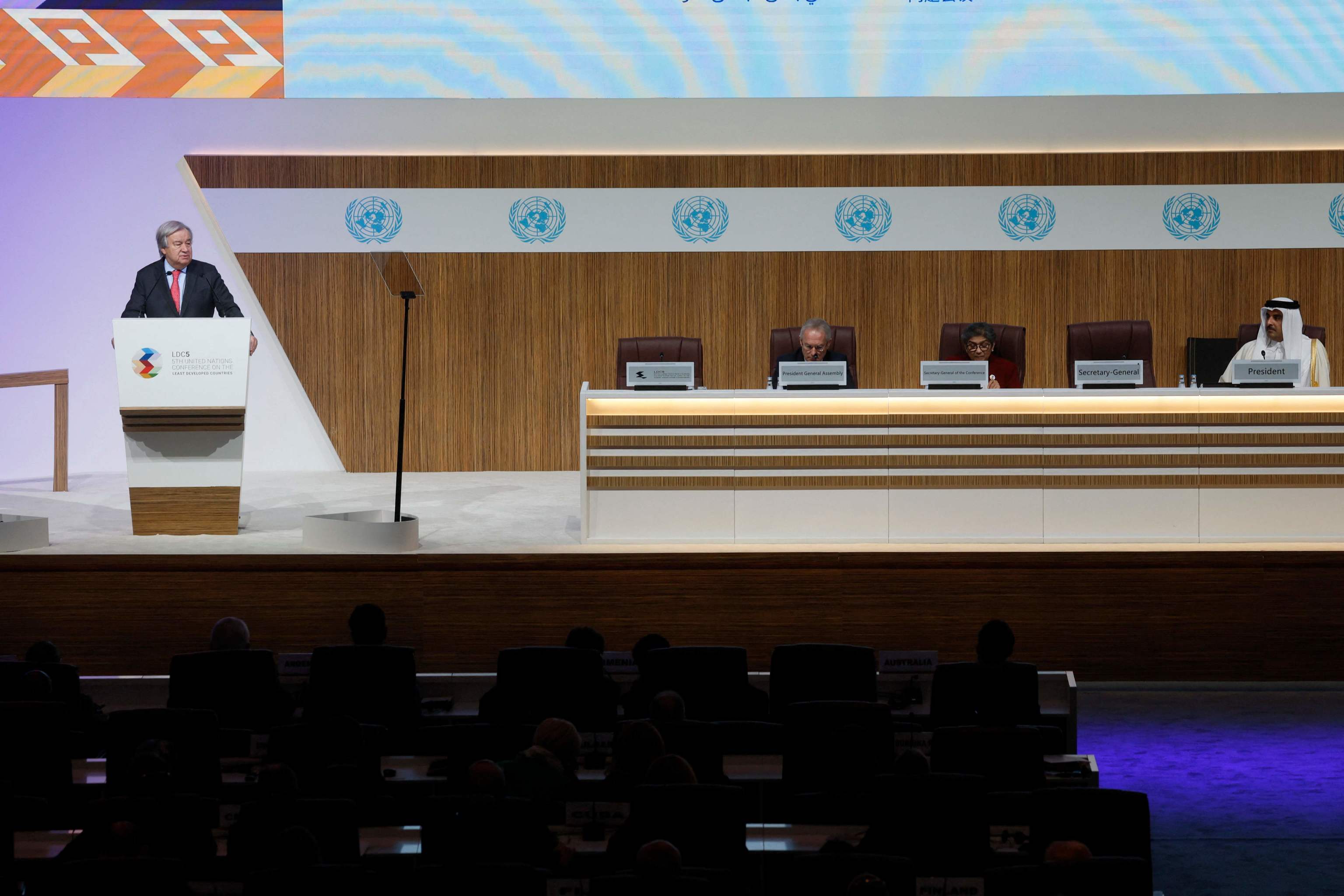The member countries of the UN reached an agreement on Saturday to create the
first international treaty for the protection of the high seas
, aimed at counteracting threats to ecosystems vital to humanity.
"The ship has arrived at the coast," announced the president of the conference, Rena Lee, at the headquarters of the United Nations Organization in New York shortly before 9:30 p.m. (0230 GMT on Sunday), to the applause of the delegates.
After
more than 15 years of discussions
, including four of formal talks, the third negotiating session in less than a year announced the long-awaited consensus.
The treaty is considered essential to
conserve 30% of the world's land and oceans by 2030,
as agreed by the world's governments in an agreement signed in Montreal in December.
Currently only 1% of the high seas is protected.
"This is a historic day for conservation and a sign that, in a divided world, protecting nature and people trumps geopolitics," said Laura Meller of Greenpeace.
After two weeks of intense talks at UN headquarters, including a marathon late-night session on Friday and Saturday, delegates finalized a text that cannot be significantly altered.
"There will be no reopening and no substantive negotiations," Lee told negotiators.
The agreement will be formally adopted once it has been examined by legal experts and translated into the six official languages of the United Nations, he announced.
The Secretary General of the UN, Antonio Guterres.KARIM JAAFAR |
AFP
The Secretary General of the United Nations,
Antonio Guterres, congratulated the delegates
, according to a spokesman who conveyed that this agreement was a "victory for multilateralism and for global efforts to counter destructive trends that affect the health of the oceans. ".
The European Union applauded a "crucial step to preserve marine life and biodiversity, which are essential for us and for generations to come."
The high seas begin where the Exclusive Economic Zones (EEZ) of the States end, at a maximum of 200 nautical miles (370 km) from the coast, so it is not under the jurisdiction of any country.
protected areas
Despite
representing more than 60% of the oceans and almost half of the planet
, the high seas have long been ignored as attention has focused on coastal areas and emblematic species.
With the advances of science, the importance of protecting all these oceans with an often microscopic biodiversity
has been demonstrated ,
which provides half of the oxygen we breathe and limits global warming by absorbing a significant part of the CO2 generated by human activity.
But the oceans are weakening, victims of these emissions (warming, water acidification), pollutants of all kinds and overfishing.
When the treaty enters into force after it has been formally adopted, signed and ratified by a sufficient number of countries, marine protected areas may be created in international waters.
"Life on Earth depends on a healthy ocean. The new treaty on the high seas will be vital to our common goal of protecting 30% of the oceans by 2030," said Mónica Medina, head of oceans at the US Department of State.
The special US presidential envoy for Climate, John Kerry, at the forum on oceans in Panama. LUIS ACOSTA |
AFP
The treaty on "the conservation and sustainable use of marine biodiversity in areas that do not depend on national jurisdiction" also introduces the obligation to carry out environmental impact studies of the activities that are going to be carried out on the high seas.
genetic resources
Another very sensitive chapter that maintained tensions until the last minute is the principle of sharing the benefits of marine genetic resources from the high seas.
Developing countries that do not have the means to finance expensive expeditions and research have fought not to be excluded from the manna that awaits the possible commercialization by pharmaceutical or cosmetic companies of miraculous molecules from these marine organisms that do not belong to anyone.
As in other international forums, particularly in the climate negotiations, the debate has come down to a
question of North-South equity,
according to observers.
In an announcement seen as a gesture to bolster North-South confidence,
the European Union in New York pledged 40 million euros
($42.4 million) to facilitate the ratification of the treaty and its initial application.
He also
announced in Panama more than 800 million euros
(848 million dollars) to protect the oceans by 2023 at the
"Our Oceans" conference that concluded on Friday.
In total, the Panamanian Minister of Foreign Affairs, Janaina Tewaney, announced "341 new commitments" for an amount of close to 20,000 million dollars -of which close to 6,000 million offered by the United States- that were adopted during this conference to protect the seas.
According to the criteria of The Trust Project
Know more

